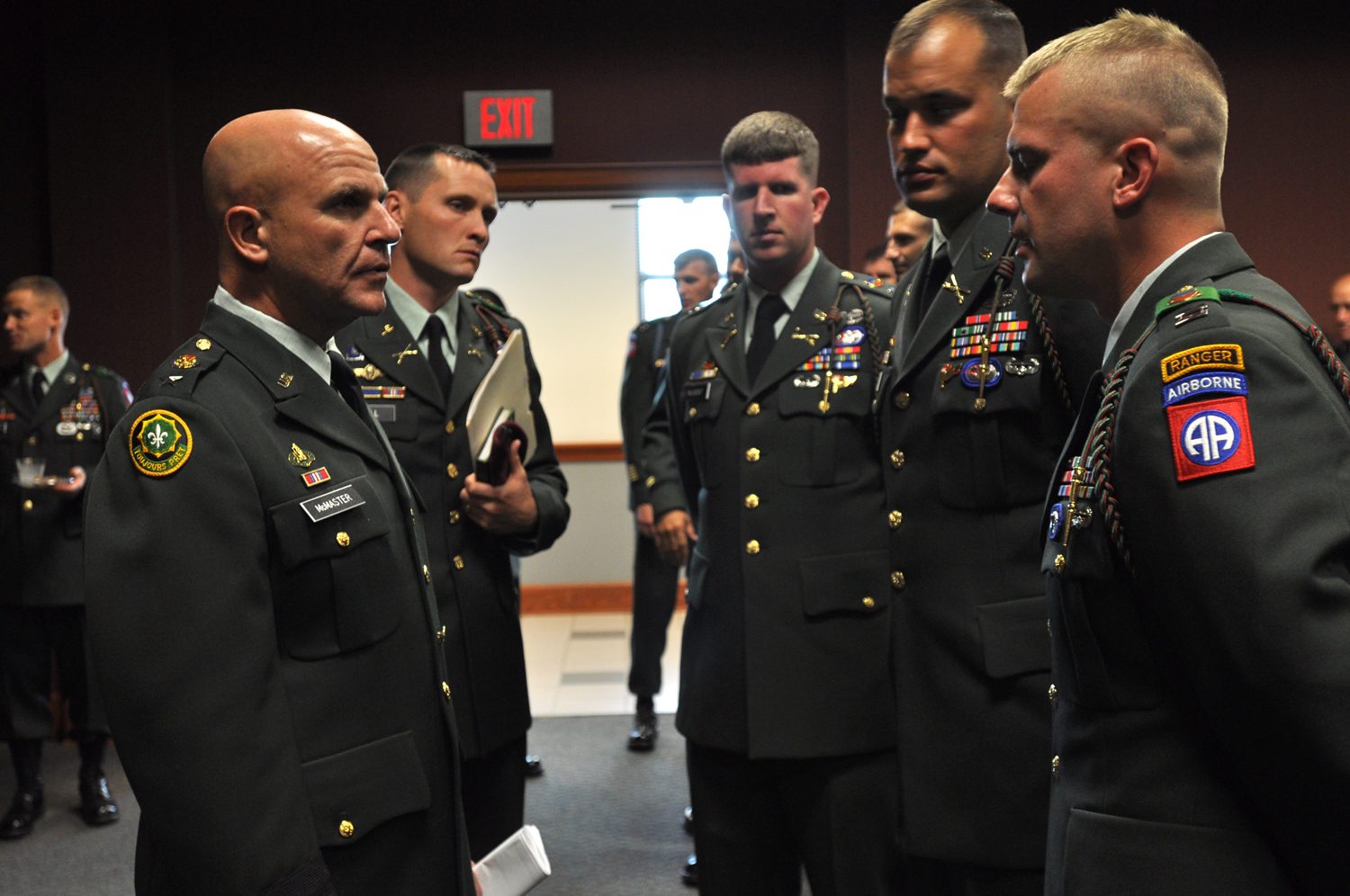McMaster Named National Security Advisor
President Donald Trump has named Army Lieutenant General Herbert Raymond “H.R.” McMaster, 54, as his new National Security Adviser, calling McMaster a “man of tremendous talent and tremendous experience.” McMaster, who is widely respected military strategist and has been praised as a “good choice” by former military officials, will replace General Keith Kellogg, who has been act

President Donald Trump has named Army Lieutenant General Herbert Raymond “H.R.” McMaster, 54, as his new National Security Adviser, calling McMaster a “man of tremendous talent and tremendous experience.” McMaster, who is widely respected military strategist and has been praised as a “good choice” by former military officials, will replace General Keith Kellogg, who has been acting National Security Adviser since the resignation of retired Lt. General Michael T. Flynn.
The Trump administration has had unusual difficulty filling the post. Retired Vice Admiral Robert Harward was offered the position only to turn it down after disagreement with the administration over his ability to choose his own team: Trump reportedly refused to allow Harward to replace current Deputy National Security Advisor K.T. McFarland. According to MSNBC, Harward also requested a revised NSC structure that would have pushed out Trump’s chief strategist Steve Bannon from his controversial role on the NSC and Principals Committee, and chose not to accept the position after watching Trump’s lengthy and chaotic press conference last week. It is unclear whether McMaster will be allowed to have more control over the NSC structure and personnel. Unlike Harward, McMaster is an active member of the United States military, which makes him unable to rebuff the commander-in-chief.
Having accepted the position, McMaster will now join the ranks of numerous generals serving at high-level positions in the Trump administration, including Defense Secretary James Mattis and Secretary of Homeland Security John Kelly.
McMaster graduated from West Point in 1984 and received his Master of Arts and Ph.D degrees in American history from the University of North Carolina at Chapel Hill, where he achieved notoriety for his study of the war in Vietnam which blasted the Joint Chiefs of Staff for their poor leadership. McMaster turned it into a book called Dereliction of Duty: Lyndon Johnson, Robert McNamara, the Joint Chiefs of Staff, and the Lies That Led to Vietnam, published in 1997.
The book, which received the Arthur Goodzeit Book Award for an original work of military history with unusual value, is a tour de force indictment of the military leadership’s inability to push back against the White House’s political agenda during the early years of the Vietnam War, and how it led to defeat. The book is on the Marine Corps suggested reading list for colonels and generals. The New Yorker said that the book “assembled a damning case against senior military leaders for failing to speak their minds when, in the early years of the war, they disagreed with Pentagon policies,” while CNN called it “the seminal work on military's responsibility during Vietnam to confront their civilian bosses when strategy was not working.”
McMaster has served in numerous conflicts, including Operation Desert Storm at the Battle of 73 Easting (his role was included in a Tom Clancy novel), and in the Iraq War of 2003, where he took back the town of Tal Afar from an insurgent group in a bright moment during the war in a textbook example of how to wage a counterinsurgency fight. He was also part of retired General David Petraeus’ band of “warrior-intellectuals” that helped prosecute the “surge” in Iraq.
McMaster was most recently given a command as the Director of the Army Integration Capabilities Center, where he focuses on how to create the future fighting force of the United States. McMaster has been lauded as one of the Army’s most “disruptive” thinkers for the past 25 years, and brings a dynamic personality to the job of National Security Adviser. “Throughout his career, he has been exceptionally competent and exceptionally proficient,” according to General David Perkins, the commander of U.S. Army Training and Doctrine Command. Even so, some friends of McMaster had said that he was mulling retirement when he got the call from Trump.
McMaster has given talks on the future of war at numerous conferences, including the New America Foundation’s annual Future of War conference, which he is slated to speak at again next month. McMaster has called cyber-terrorism a “significant threat,” and as a student of military history has noted that there is a “continuity” to war.



.png?sfvrsn=48e6afb0_5)

